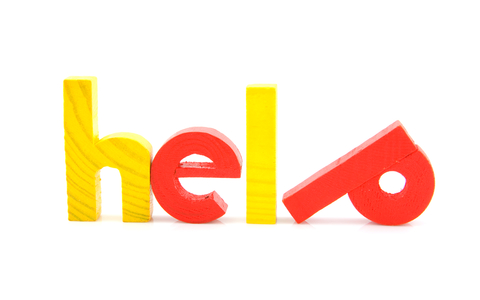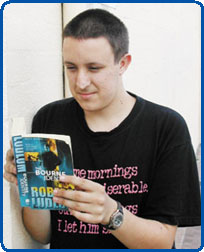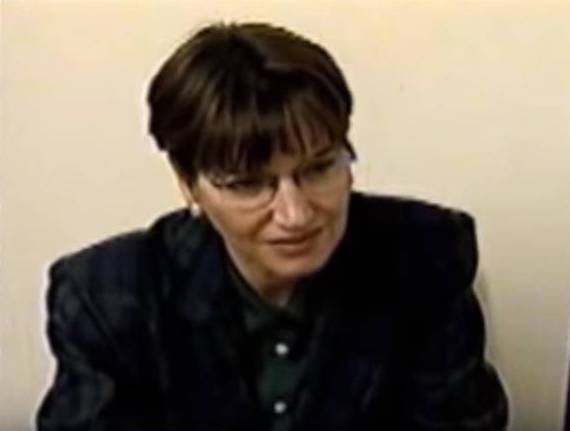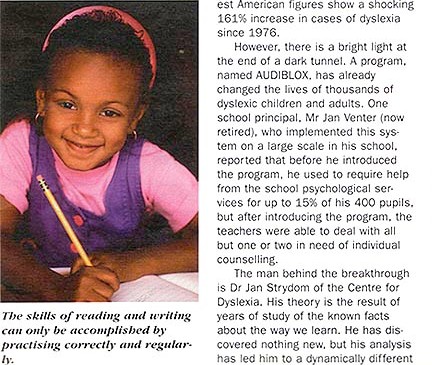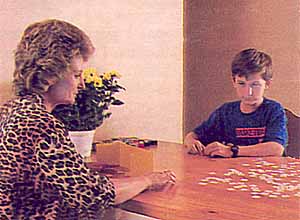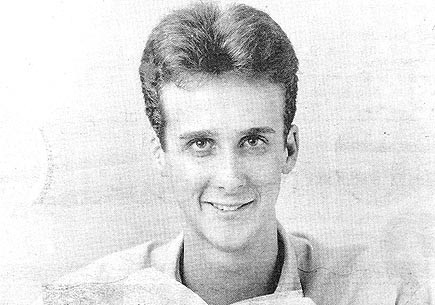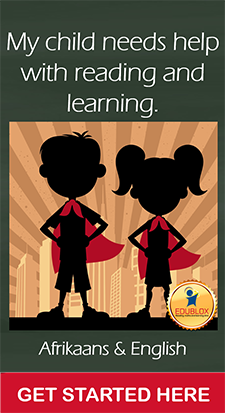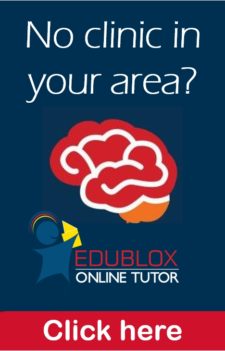TV Programme: ITV’s “Let’s Talk” about Dyslexia
The term dyslexia was coined from the Greek words "dys", meaning ill or difficult, and "lexis", meaning word. It is used to refer to persons for whom reading is simply beyond their reach. Spelling and writing, due to their close relationship with reading, are usually included. Watch ITV's “Let's Talk” on the subject of dyslexia.
Read MoreHow to Get Your Letters In Line: Researcher Devises Programme for Dyslexics
A learning method, that has been developed by a South African educationist over the past thirty years, is nowadays helping children all over the world to escape from the debilitating grip of dyslexia.
Read MoreNew Hope for Slow Readers
Despite having adequate intelligence and opportunity, many children show great disparity between their verbal skills and learning ability. These children, often regarded as 'learning disabled', are now being offered new hope...
Read MoreTV Documentary, Carte Blanche: Dyslexia and ADHD
Despite having an average intellectual ability and after many years of therapy, Michal was still completely illiterate at the age of 13. He was diagnosed with Attention Deficit Disorder and severe dyslexia. But then Michal attended a 10-day course. View his remarkable progress...
Read MoreDyslexia — Article in New Horizons
When in the fifties, the term “dyslexia” came to be widely used to describe normal children who had learning disabilities akin to those who suffered brain damage, it was seized on with relief by parents and teachers alike. The idea that it was only a matter of time before its cause could be isolated and a fix-it drug developed, seemed soothingly feasible.
Read MoreDyslexia: Beating the Back-to-Front Battle
Reversing words, writing letters back to front, not being able to remember the sequence of letters in a word or sometimes reading from right to left — dyslexia is a frustrating and often embarrassing problem in our world of high-tech communications. But in the midst of differing theories of what it is, what causes it and how to overcome it, one man has a different opinion.
Read MoreDyslexia: New Treatment, New Hope
Why many intelligent children should suffer seeming 'word blindness' has baffled and frustrated parents and professionals in many fields throughout this century. Is there, at last, some light at the end of the tunnel? HILARY BASSETT investigates.
Read MoreOvercoming Dyslexia
Imagine not being able to read. Your academic career would not venture further than high school, seriously hampering your chances of ever working your way up in the world. You could never apply for a job without assistance, being incapable of filling in an application form. You couldn’t write to friends, read for pleasure or simply read road signs and maps on long journeys. In essence, you would be severely disabled in a reading world.
Read MoreNew Hope through Audiblox
Dyslexia is a growing problem. There is no doubt that many children and many adults have difficulties in reading. Most people regard dyslexia as a learning problem or disability...
Read MoreDyslexia Breakthrough
A program, which solves children’s spelling and reading problems has been devised by a Pretoria educationist, Dr Jan Strydom. Dr Strydom “completely by accident” stumbled on to this educational treatment which involves placing coloured blocks in various complicated sequences.
Read More



